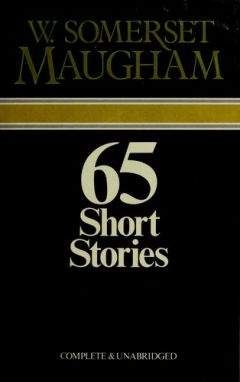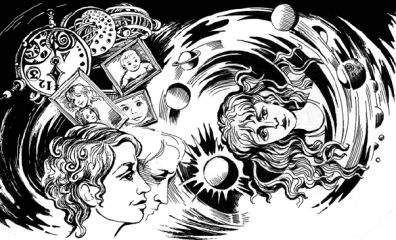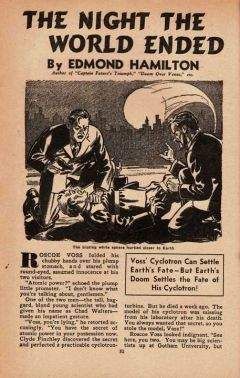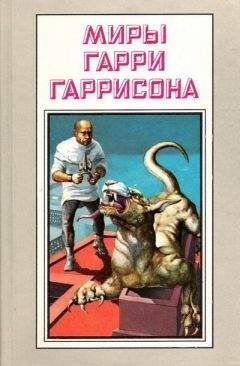Somerset Maugham - Sixty-Five Short Stories

Скачивание начинается... Если скачивание не началось автоматически, пожалуйста нажмите на эту ссылку.
Жалоба
Напишите нам, и мы в срочном порядке примем меры.
Описание книги "Sixty-Five Short Stories"
Описание и краткое содержание "Sixty-Five Short Stories" читать бесплатно онлайн.
I do not remember that for so small a sum I have ever purchased better entertainment. For Mr John Blackbridge in these pages of his did a thing no writer can do who deliberately tries to, but that, if done unconsciously, gives a book a rare and precious savour; he painted a complete portrait of himself. He stands before the reader so vividly that I was convinced that a wood-cut of him figured as a frontispiece and I was surprised to discover, on looking at the book again the other day, that there was nothing of the kind. I see him very distinctly as a man of middle-age, in a black frockcoat and a chimney-pot hat, wearing a black satin stock; he is clean-shaven and his jaw is square; his lips are thin and his eyes wary; his face is sallow and somewhat wrinkled. It is a countenance not without severity, but when he tells a story or makes one of his dry jokes his eyes light up and his smile is winning. He enjoyed his bottle of Burgundy, but I cannot believe that he ever drank enough to confuse his excellent faculties. He was just rather than merciful at the card-table and he was prepared to punish presumption with rigour. He had few illusions, for here are some of the things that life had taught him: 'Men hate those whom they have injured; men love those whom they have benefited; men naturally avoid their benefactors; men are universally actuated by self-interest; gratitude is a lively sense of expected benefits; promises are never forgotten by those to whom they are made, usually by those who make them.'
It may be presumed that he was a Southerner, for while speaking of Jack Pots, which he describes as a frivolous attempt to make the game more interesting, he remarks that they are not popular in the South. 'This last fact,' he says, 'contains much promise, because the South is the conservative portion of the country, and may be relied on as the last resort of good sense in social matters. The revolutionary Kossuth made no progress below Richmond; neither Spiritualism, nor Free Love, nor Communism, has ever been received with the least favour by the Southern mind; and it is for this reason that we greatly respect the Southern verdict upon the Jack Pot.' It was in his day an innovation and he condemned it. 'The time has arrived when all additions to the present standard combinations in Draw Poker must be worthless; the game being complete. The Jack Pot,' he says, 'was invented (in Toledo, Ohio) by reckless players to compensate losses incurred by playing against cautious players; and the principle is the same as if a party should play whist for stakes, and all be obliged every few minutes to stop, and purchase tickets in a lottery; or raffle for a turkey; or share a deal in Keno.'
Poker is a game for gentlemen (he does not hesitate to make frequent use of this abused word; he lived in a day when to be a gentleman had its obligations but also its privileges) and a straight flush is to be respected, not because you make money on it ('I have never seen anyone make much money upon a straight flush,' he says) but 'because it prevents any hand from being absolutely the winning hand, and thus relieves gentlemen from the necessity of betting on a certainty. Without the use of straights, and hence without the use of a straight flush, four aces would be a certainty and no gentleman could do more than call on them.' This, I confess, catches me on the raw, for once in my life I had a straight flush, and bet on it till I was called.
Mr John Blackbridge had personal dignity, rectitude, humour, and common sense. 'The amusements of mankind,' he says, 'have not as yet received proper recognition at the hands of the makers of the civil law, and of the unwritten social law,' and he had no patience with the persons who condemn the most agreeable pastime that has been invented, namely gambling, because risk is attached to it. Every transaction in life is a risk, he truly observes, and involves the question of loss and gain. 'To retire to rest at night is a practice that is fortified by countless precedents, and it is generally regarded as prudent and necessary. Yet it is surrounded by risks of every kind.' He enumerates them and finally sums up his argument with these reasonable words: 'If social circles welcome the banker and merchant who live by taking fair risks for the sake of profit, there is no apparent reason why they should not at least tolerate the man who at times employs himself in giving and taking fair risks for the sake of amusement.' But here his good sense is obvious. 'Twenty years of experience in the city of New York, both professionally (you must not forget that he is an actuary and counsellor-at-law) and as a student of social life, satisfy me that the average American gentleman in a large city has not over three thousand dollars a year to spend upon amusements. Will it be fair to devote more than one-third of his fund to cards? I do not think that anyone will say that one-third is not ample allowance for a single amusement. Given, therefore, a thousand dollars a year for the purpose of playing Draw Poker, what should be the limit of the stakes, in order that the average American gentleman may play the game with a contented mind, and with the certainty not only that he can pay his losses, but that his winnings will be paid to him?' Mr Blackbridge has no doubt that the answer is two dollars and a half. 'The game of Poker should be intellectual and not emotional; and it is impossible to exclude the emotions from it, if the stakes are so high that the question of loss and gain penetrates to the feelings.' From this quotation it may be seen that Mr Blackbridge looked upon poker as only on the side a game of chance. He considered that it needed as much force of character, mental ability, power of decision, and insight into motive to play poker as to govern a country or to lead an army, and I have an idea that on the whole he would have thought it a more sensible use of a man's faculties.
I am tempted to quote interminably, for Mr Blackbridge seldom writes a sentence that is other than characteristic, and his language is excellent; it is dignified as befits his subject and his condition (he does not forget that he is a gentleman), measured, clear, and pointed. His phrase takes an ample sweep when he treats of mankind and its foibles, but he can be as direct and simple as you please. Could anything be better than this terse but adequate description of a card-sharper? 'He was a very good-looking man of about forty years of age, having the appearance of one who had been leading a temperate and thoughtful life.' But I will content myself with giving a few of his aphorisms and wise saws chosen almost at random from the wealth of his book.
'Let your chips talk for you. A silent player is so far forth, a mystery; and a mystery is always feared.'
'In this game never do anything that you are not compelled to; while cheerfully responding to your obligations.'
'At Draw Poker all statements not called for by the laws of the game, or supported by ocular demonstration, may be set down as fictitious; designed to enliven the path of truth throughout the game, as flowers in summer enliven the margins of the highway.' 'Lost money is never recovered. After losing you may win, but the losing does not bring the winning.'
'No gentleman will ever play any game of cards with the design of habitually winning and never losing.'
'A gentleman is always willing to pay a fair price for recreation and amusement.'
'. . . that habit of mind which continually leads us to undervalue the mental force of other men, while we continually overvalue their good luck.'
'The injury done to your capital by a loss is never compensated by the benefit done to your capital by a gain of the same amount.'
'Players usually straddle when they are in bad luck, upon the principle that bad play and bad luck united will win. A slight degree of intoxication aids to perfect this intellectual deduction.'
'Euchre is a contemptible game.'
'The lower cards as well as the lower classes are only useful in combination or in excess, and cannot be depended upon under any other circumstances.'
'It is a hard matter to hold four Aces as steadily as a pair, but the table will bear their weight with as much equanimity as a pair of deuces.'
Of good luck and bad luck: 'To feel emotions over such incidents is unworthy of a man; and it is much more unworthy to express them. But no words need be wasted over practices which all men despise in others; and, in their reflecting moments, lament in themselves.'
'Endorsing for your friends is a bad habit, but it is nothing to playing Poker on credit. . . . Debit and credit ought never to interfere with the fine intellectual calculations of this game.'
There is a grand ring in his remarks on the player who has trained his intellect to bring logic to bear upon the principles and phenomena of the game. 'He will thus feel a constant sense of security amid all possible fluctuations that occur, and he will also abstain from pressing an ignorant or an intellectually weak opponent, beyond what may be necessary either for the purpose of playing the game correctly, or of punishing presumption.'
I leave Mr John Blackbridge with this last word and I can hear him saying it gently, but with a tolerant smile:
'For we must take human nature as it is.'
Raw Material
I have long had in mind a novel in which a card-sharper was the principal character; and, going up and down the world, I have kept my eyes open for members of this profession. Because the idea is prevalent that it is a slightly dishonourable one the persons who follow it do not openly acknowledge the fact. Their reticence is such that it is often not till you have become quite closely acquainted with them, or even have played cards with them two or three times, that you discover in what fashion they earn their living. But even then they have a disinclination to enlarge upon the mysteries of their craft. They have a weakness for passing themselves off for cavalrymen, commercial agents, or landed proprietors. This snobbish attitude makes them the most difficult class in the world for the novelist to study. It has been my good fortune to meet a number of these gentlemen, and though I have found them affable, obliging, and debonair, I have no sooner hinted, however discreetly, at my curiosity (after all purely professional) in the technique of their calling than they have grown shy and uncommunicative. An airy reference on my part to stacking the cards has made them assume immediately the appearance of a clam. I am not easily discouraged, and learning by experience that I could hope for no good results from a direct method, I have adopted the oblique. I have been childlike with them and bland. I have found that they gave me their attention and even their sympathy. Though they confessed honestly that they had never read a word I had written they were interested by the fact that I was a writer. I suppose they felt obscurely that I too followed a calling that the Philistine regarded without indulgence. But I have been forced to gather my facts by a bold surmise. It has needed patience and industry.
It may be imagined with what enthusiasm I made the acquaintance a little while ago of two gentlemen who seemed likely to add appreciably to my small store of information. I was travelling from Haiphong on a French liner going East, and they joined the ship at Hong-Kong. They had gone there for the races and were now on their way back to Shanghai. I was going there too, and thence to Peking. I soon learned that they had come from New York for a trip, were bound for Peking also, and by a happy coincidence meant to return to America in the ship in which I had myself booked a passage. I was naturally attracted to them, for they were pleasant fellows, but it was not till a fellow-passenger warned me that they were professional gamblers that I settled down to complete enjoyment of their acquaintance. I had no hope that they would ever discuss with frankness their interesting occupation, but I expected from a hint here, from a casual remark there, to learn some very useful things.
One-Campbell was his name-was a man in the late thirties, small, but so well built as not to look short, slender, with large, melancholy eyes and beautiful hands. But for a premature baldness he would have been more than commonly good-looking. He was neatly dressed. He spoke slowly, in a low voice, and his movements were deliberate. The other was made on another pattern. He was a big, burly man with a red face and crisp black hair, of powerful appearance, strong in the arm and pugnacious. His name was Peterson.
The merits of the combination were obvious. The elegant, exquisite Campbell had the subtle brain, the knowledge of character, and the deft hands; but the hazards of the card-sharper's life are many, and when it came to a scrap Peterson's ready fist must often have proved invaluable. I do not know how it spread through the ship so quickly that a blow of Peterson's would stretch any man out. But during the short voyage from Hong-Kong to Shanghai they never even suggested a game of cards. Perhaps they had done well during the race-week and felt entitled to a holiday. They were certainly enjoying the advantages of not living for the time in a dry country and I do not think I do them an injustice if I say that for the most part they were far from sober. Each one talked little of himself but willingly of the other. Campbell informed me that Peterson was one of the most distinguished mining engineers in New York and Peterson assured me that Campbell was an eminent banker. He said that his wealth was fabulous. And who was I not to accept ingenuously all that was told me? But I thought it negligent of Campbell not to wear jewellery of a more expensive character. It seemed to me that to use a silver cigarette case was rather careless.
I stayed but a day in Shanghai, and though I met the pair again in Peking I was then so much engaged that I saw little of them. I thought it a little odd that Campbell should spend his entire time in the hotel. I do not think he even went to see the Temple of Heaven. But I could quite understand that from his point of view Peking was unsatisfactory and I was not surprised when the pair returned to Shanghai, where, I knew, the wealthy merchants played for big money. I met them again in the ship that was to take us across the Pacific and I could not but sympathize with my friends when I saw that the passengers were little inclined to gamble. There were no rich people among them. It was a dull crowd. Campbell indeed suggested a game of poker, but no one would play more than twenty-dollar table stakes, and Peterson, evidently not thinking it worth while, would not join. Although we played afternoon and evening through the journey he sat down with us only on the last day. I suppose he thought he might just as well make his bar chits, and this he did very satisfactorily in a single sitting. But Campbell evidently loved the game for itself. Of course it is only if you have a passion for the business by which you earn your living that you can make a success of it. The stakes were nothing to him and he played all day and every day. It fascinated me to see the way in which he dealt the cards, very slowly, with his delicate hands. His eyes seemed to bore through the back of each one. He drank heavily, but remained quiet and self-controlled. His face was expressionless. I judged him to be a perfect card-player and I wished that I could see him at work. It increased my esteem for him to see that he could take what was only a relaxation so seriously.
I parted with the pair at Victoria and concluded that I should never see them again. I set about sorting my impressions and made notes of the various points that I thought would prove useful.
Подписывайтесь на наши страницы в социальных сетях.
Будьте в курсе последних книжных новинок, комментируйте, обсуждайте. Мы ждём Вас!
Похожие книги на "Sixty-Five Short Stories"
Книги похожие на "Sixty-Five Short Stories" читать онлайн или скачать бесплатно полные версии.
Мы рекомендуем Вам зарегистрироваться либо войти на сайт под своим именем.
Отзывы о "Somerset Maugham - Sixty-Five Short Stories"
Отзывы читателей о книге "Sixty-Five Short Stories", комментарии и мнения людей о произведении.














